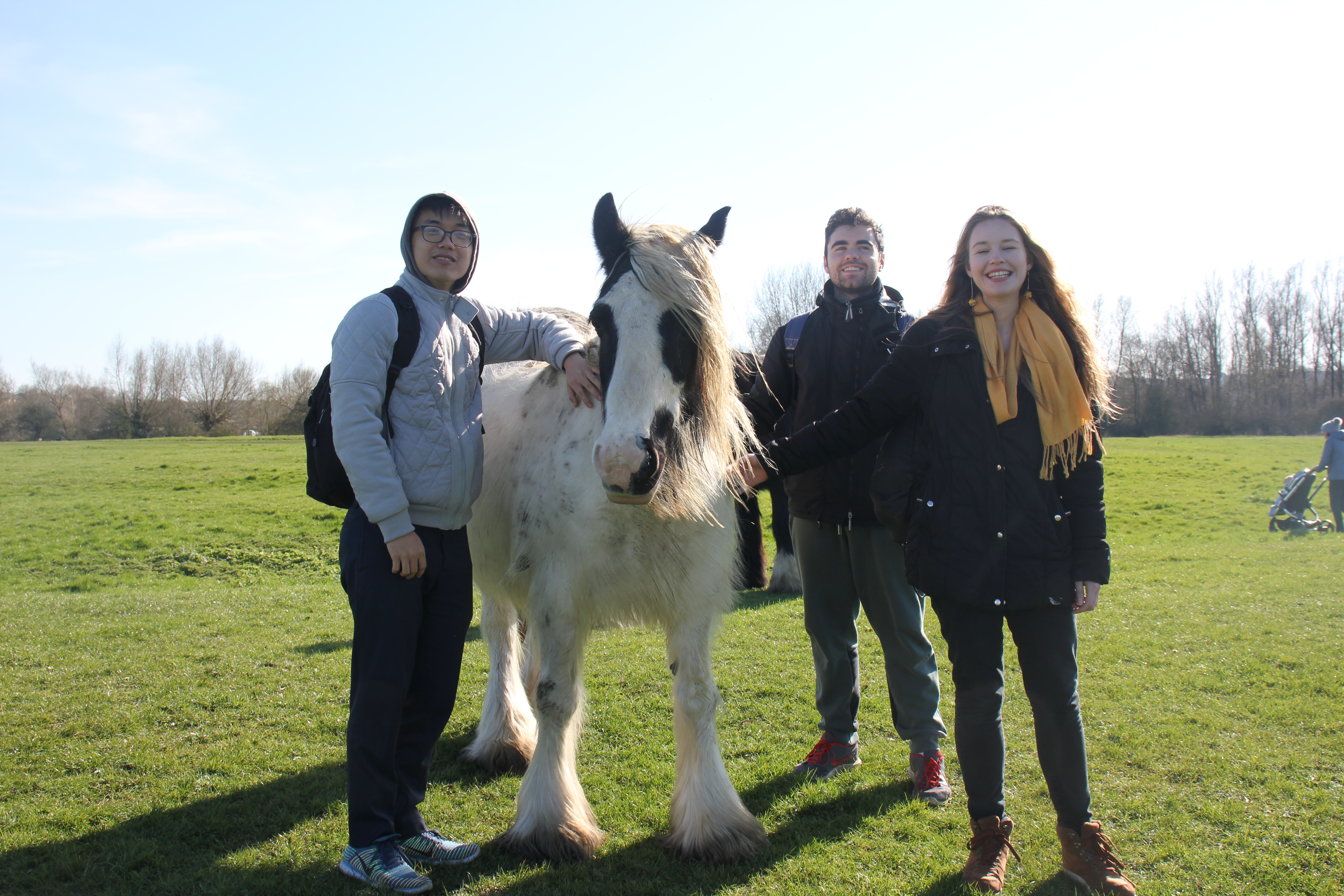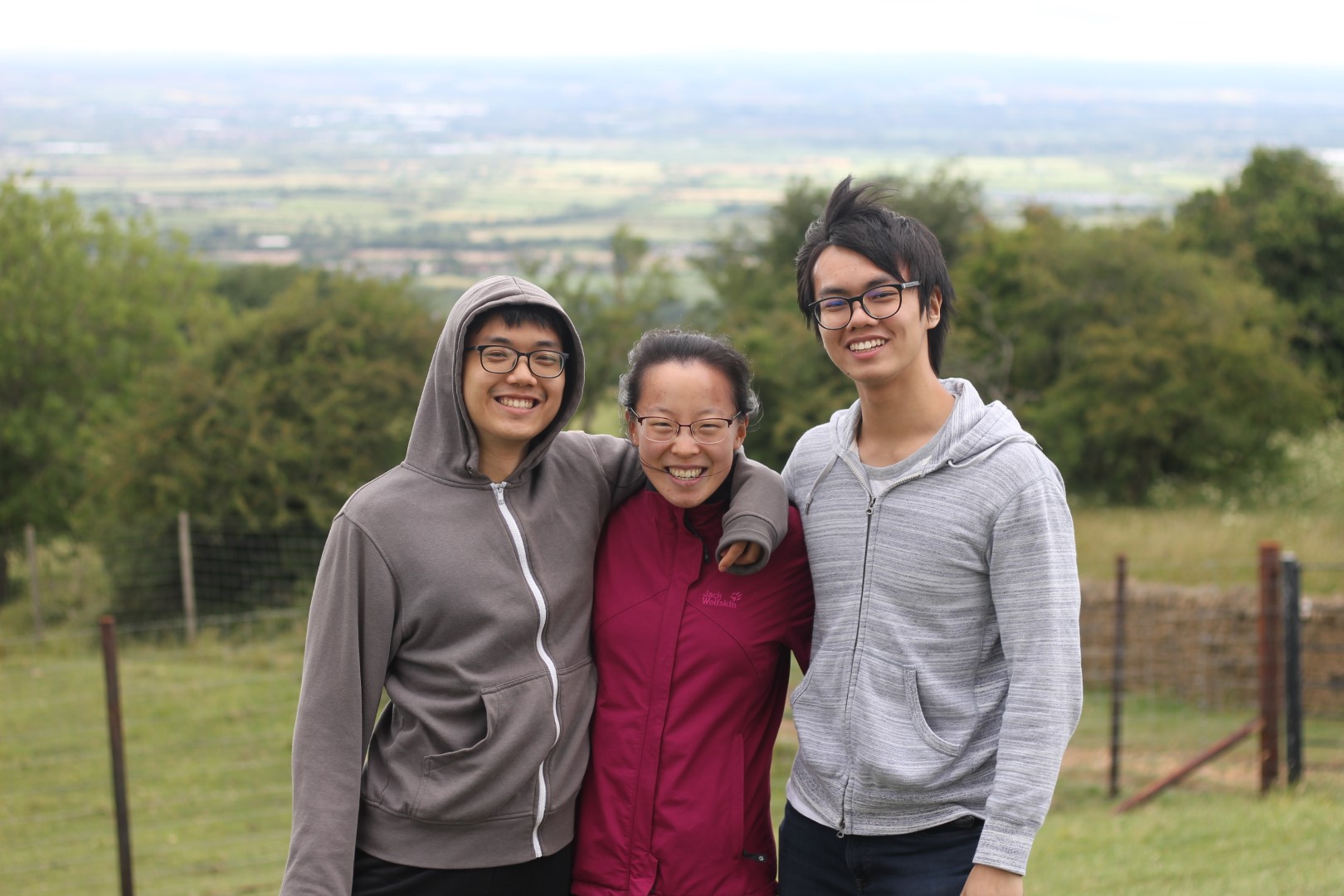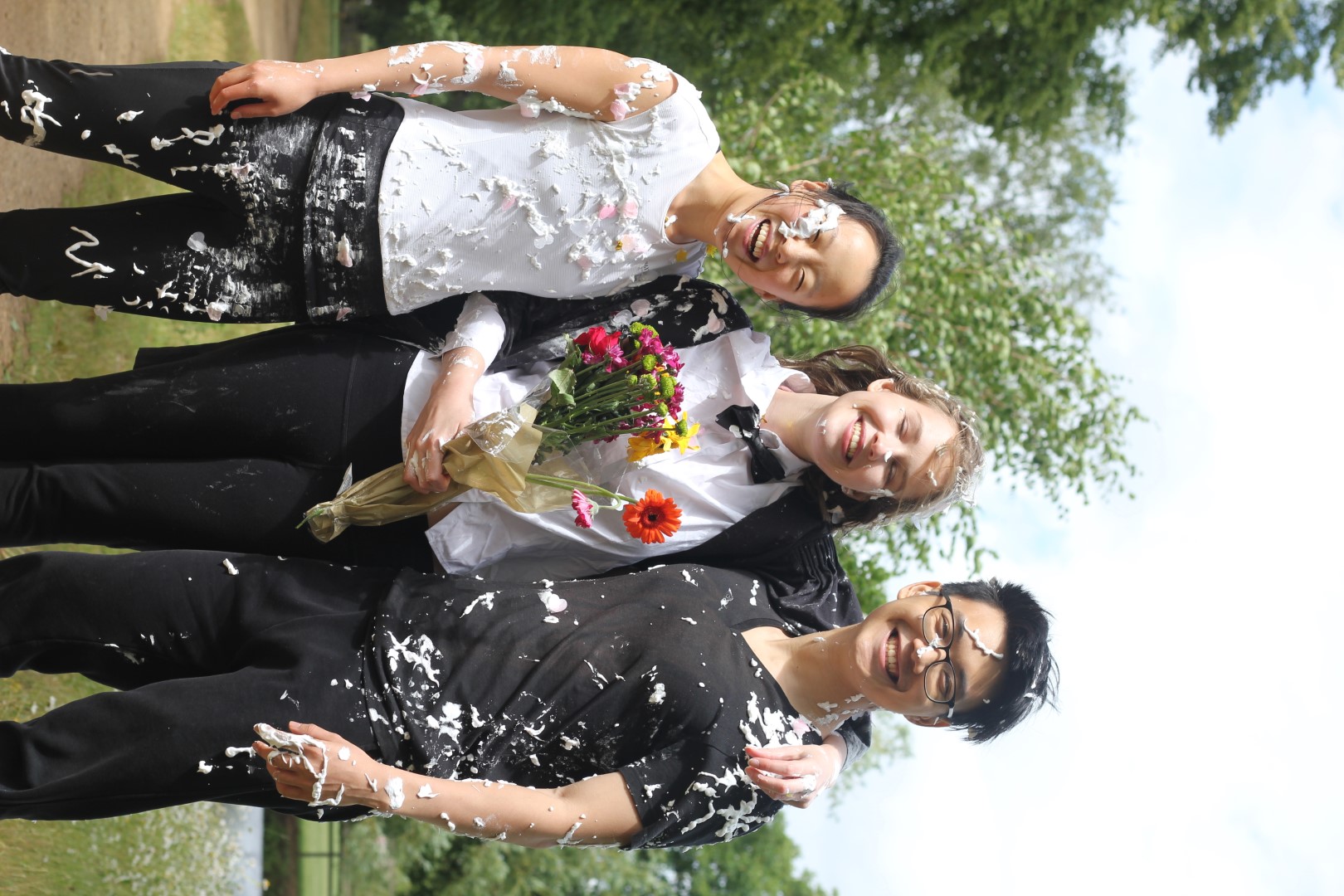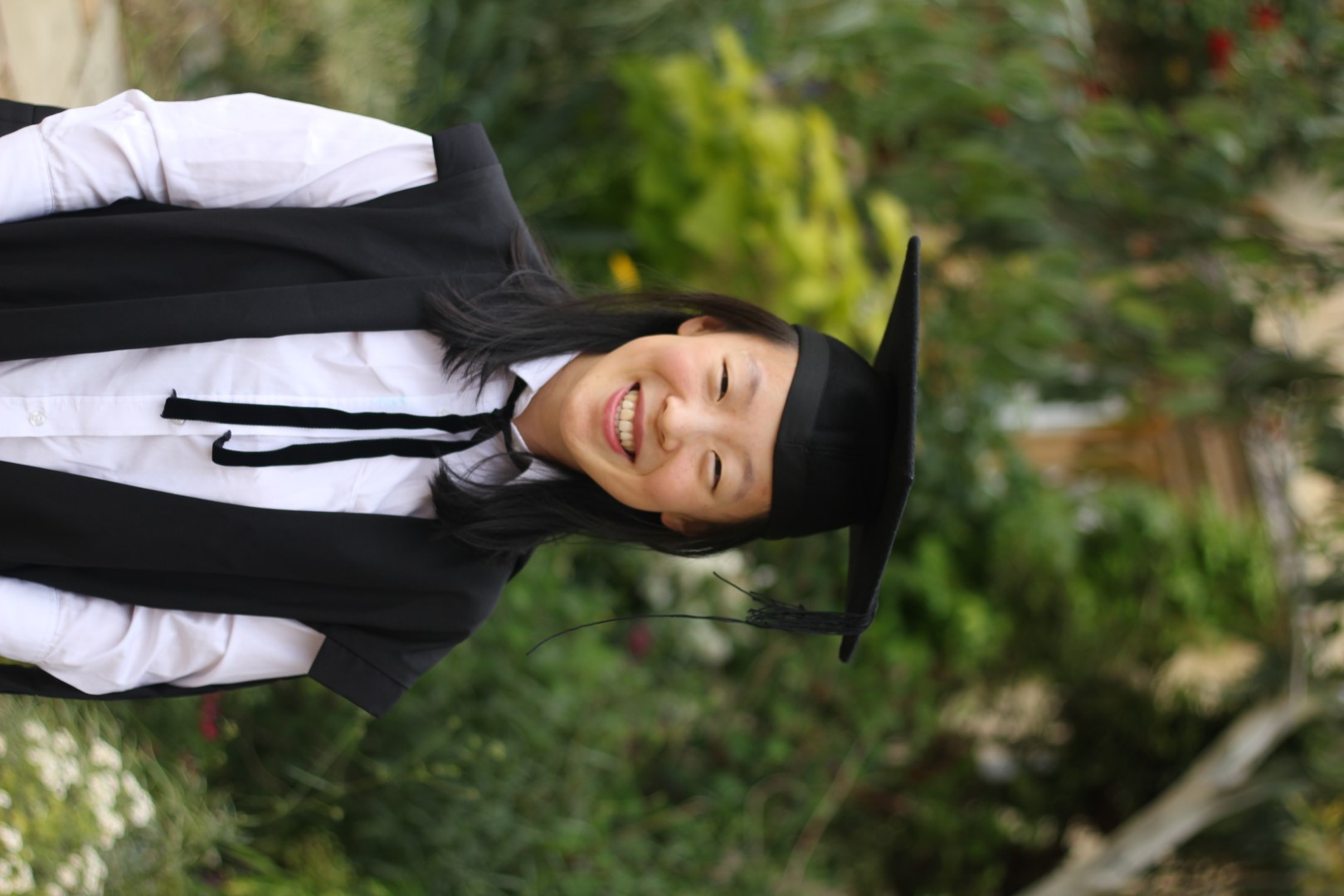PPE Finals at Oxford
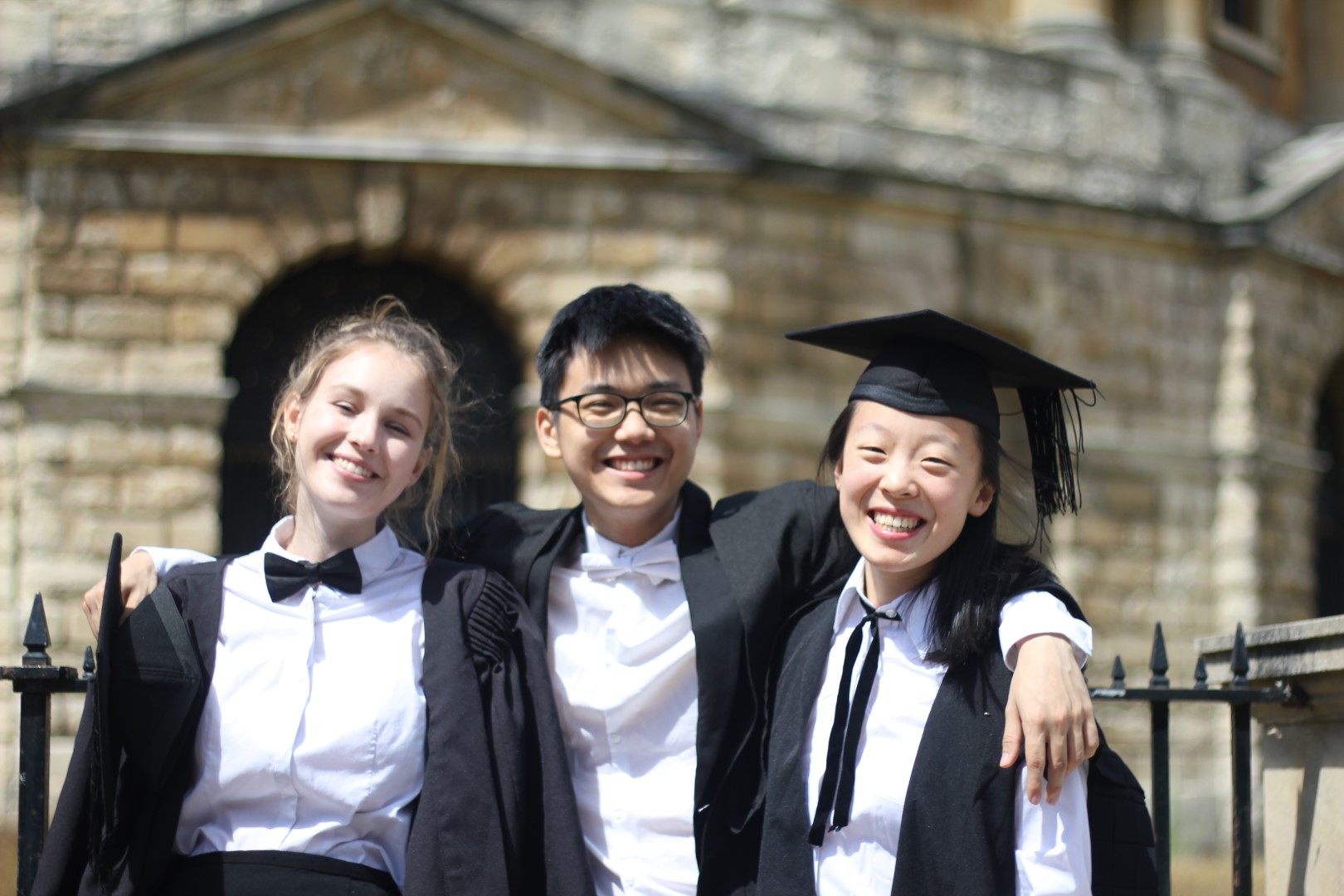
Table of Contents:
- Overview
- What are Finals exams in Oxford?
- Month-by-month journal
- Reflection
Overview
This post is about my experience of sitting my PPE (Philosophy, Politics, Economics) Finals exams at Oxford in 2020. Originally, I intended it to become a piece for anyone who is interested or who will be sitting Finals themselves in the future to read. This is still the case, however, because of the pandemic and its impacts on our exams it is of course not very representative as an account of Oxford Finals in PPE. The post thus also incorporates some personal reflections about this time.
I first give a general account of what those Finals exams are all about and why they matter. What follows is a “month-by-month” journal. Here, I wrote down at the end of each month what I did for revision and also what happened because of Corona from March onwards. I wrote those just as I was doing my preparation, so is a snapshot of my impression and experience at that time. Finally, I conclude with some general reflections about that time, what is has taught me.
What are Finals exams?
Oxford is a special place in many ways. It is an old, traditional academic institution, and this is also reflected in the way that students are examined at the end of their final year.
As a PPE student on a 3-year course, we have two sets of “real” exams throughout our whole degree experience. The first, consisting of 3 exams in Economics, Politics, Philosophy is sat at the end of 1st year (“Preliminary Examination” - or Prelims for short). These exams are not counting toward our final grade, it is essentially a matter of Pass/Fail (though you do get some perks if you score a first, so there is some incentive to do well in them). The second set of exams, the one that actually counts, typically consists of 8 exams at the end of third year, which happen in the period of roughly 3 weeks. They make up one’s entire bachelor grade(!).
We do sit exams throughout those two years, so-called “collections”, but the grades don’t count for anything and they are more for you to practice writing under exam conditions as well as for knowing where you stand academically.
I am not a big fan of this way of Final examination for many reasons. I feel that it is not a very representative way of a student’s performance and abilities, and in general it exerts a lot of pressure on these 8 high-stakes exams. It seems to also test only a very specific skill. But I won’t rant too much about them here. It is a game I have to play, so I might as well play it well ;).
Each finalist sits a different set of exams, depending on which modules they chose in their 2nd and 3rd year. For me, these modules were:
- Microeconomics
- Macroeconomics
- Quantitative Economics
- Econometrics
- Beahvioural Economics
- International Relations
- Political Theory
- Advanced Paper in Theories of Justice
All papers were examined via an exam, except Behavioural Economics, where I had to instead write a 7,500 long thesis on an experiment that I conducted myself.
Month-by-month Revision Journal
At the end of each month, I took stock of what had happened, what I did for my revision work and what my goals for the next month were. Some information is rather dull as it purely concerns my academic work (though perhaps interesting for some incoming PPE finalists), but I do hope it will give the reader an idea of what the 5 month-long preparation looked like.
January
What I did:
- General setting of Mindset: My personal attitude towards finals: I want to be the best I can given the circumstances, but do not aim for a particular grade (though I would be happy with a 2:1). I want to make sure I understand the material and that I can show what I have learnt over the last 3 years. My intention is to keep positive and energized throughout the months leading up to finals - living by the motto “doing a little every day”, since it’s a Marathon and not a Sprint. Maintaining a continuous work and leisure routine is important to me. This includes: exercising frequently, eating well, spending time with friends and keeping in touch with family.
- Started blocking out time I am away, or that I want to take off from uni work (e.g. Sundays, or one week during the Easter Break)
- Calculated how much working hours I have and how much I can spend on each module. I allocated more time for more technical modules (which Economics modules tend to be) - this gave me a rule of thumb of how many days I can reasonably expect to spend on each subject
- Scoped my subjects: Writing down which topics I needed to revise (especially for Micro, Macro, QE), and which essay topics I wanted to revise again. Created “Overview” documents with keywords of the relevant subjects.
- Compiled Past Paper Questions for Micro, Macro, Political Theory, APTJ and IR grouped by topic (not by year)
- Looked at different advice documents, asked former finalist friends what they found useful and what they would have liked to know when they were going through their finals experience.
- Started on Macro Revision, doing IS-PC-MR Model (Monetary Policy), Sticky Prices and Macro at the Zero Lower Bound. It took a while to get back into it, but went relatively smoothly - though I have to admit there are still some parts, especially the more technical derivations, that I really do not understand.
- Revised one topic for IR - United Nations. By that I mean I created a summary sheet with the relevant authors, key definitions and controversies and empirical examples. This hopefully helps me later on to write good essay plans.
Goals for the next month:
- Finish first draft of my behavioural economics thesis!
- Finish Macro Revision: going through the slides and notes from last year, do some exercises alongside them!
- Start Micro Revision
- Revise two IR and 1 PolTheory topics
February
What I did:
- Completed a draft of my BEE thesis by end of the fourth week, including tables and graphs, though I am not yet at word count and there are still things I am unsure about (asked friend for feedback)
- Went through the Macro material and made some more handwritten notes on it
- Went through 6 weeks worth of Microeconomics material (General Equilibrium Theory, Fundamental Theorems of Welfare, Game Theory and Competition Policy)
- Revised three topics for Poltheory, by creating cheat sheets (Feminism, Global Justice, Political Obligation) and two for IR (Power Politics and Democratic Peace Theory)
- Had one revision class for IR and one for Poltheory: main takeaways are that it is very very important to read the question well and to answer it, to not be afraid to think a bit outside of the box, to do the thinking prior to the exam, and only focus on the analysis part during the exam.
- I also took a whole weekend off, or more like 4 days, when I went to London at the end of the 5th week for a conference. This meant I lost some momentum in my revision routine, but it was also very nice to see something else and to get a fresh perspective on Oxford again
Goals for the next month:
- Really use the first three months of March (because I am away for the fourth week in Düsseldorf, Germany) for creating and maintaining a good revision routine, weaving active recall and testing myself in my weekly and daily study sessions
- Maintain positive attitude toward finals and keep positive about it
- Finish Micro Revision (Risk and Expected Utility) and do a practice exam paper
- Revise 1 IR topic, 1 Poltheory topic and 2 APTJ topics
- Start QE Revision and Metrics Revision - or keep up the flashcards habit at least to not forget about the main concepts and derivations
- Finish my draft for BEE (by the end of the term) and present during BEE Research Day our results - that would 12.5% of my final grade done already!!
March
What happened:
Well… Things went a bit differently to what everyone - including me - expected. The pandemic surrounding the disease COVID-19 (or Coronavirus) is having far-reaching consequences for the way we do our work, conduct our social relations and simply live our lives.
I intended this post to be a month-by-month capture of my road to finals – both for me as a reflective tool and also as an experience sharing for students who will face the same situation in the future. As it stands, it looks like we are still going to take finals exams in less than two months, however in a different format (more on that below). I still want this post to be a reflection about the events that have happened this month, but it will now also include more about general thoughts and feelings, alongside the concrete tasks that I did each month.
At the time of writing (29th Mar 2020), there are 19,522 people in the UK who have been tested positive, of which 1,228 have passed away. We expect these numbers to increase in the upcoming weeks. As a response, the UK government, following many other countries, has issued “containment” policies such as closure of non-essential facilities. We are not allowed to go out in groups of 3 or more, and only for doing essential activities such as grocery shopping, work, medical care or daily exercise.
The University’s and Colleges’ responses:
Toward the end of the spring term, rumours started to arise about Trinity term (the summer term) to be cancelled. It seemed impossible at that time – no term in Oxford, how could that be?! But as the day after term end passed, it got clearer that this would be what would eventually turn into reality.
At the end of the spring term, the University sent an e-mail to all students saying that they intended to resume teaching in Trinity as usual. They encouraged all domestic students to go back home, but said international students were welcome to stay. 3 days later, they changed the tone, confirming that teaching in Trinity would be almost completely remote. It was also recommended to go home (even the international students) if possible to do so.
Colleges started to adapt to the new situation, but because each college has its own administration, their policies varied somewhat amongst each other. Some sent their students back home (even those coming from countries hit hard by the crisis such as Spain) directly at the end of term, others allowed those who could not return home to stay. After a tightening of government regulations (the “Lockdown”), most colleges shut their functions down to an absolute minimum, sending most of their staff except porters home, as well as closing libraries, halls and common rooms.
I was luckily allowed by my college to stay in my current room, as are some of my friends. Most people left however, and returned to their families.
What does this mean for our final exams?
This question has been discussed intensively the past days, both amongst academics and governing body, as well as the student community. We are still waiting for definitive instructions which should be coming next week. As of now, it is clear that the usual 3 hour sit-down exams in Examination Schools within a period of 3 weeks is not going to happen. So no student has to come back to Oxford to do their exams (of course this would not even be possible given the travel restrictions). This is actually pretty huge. I don’t think this has ever happened except in World War II or something.
Instead, we will have online exams. This of course has multiple difficulties: People are in different time zones; they have different speeds or acces to Internet, some might not have a quite study space without distractions; there is no invigilation, so students could cheat during the exam, and of course, people are affected emotionally and physically by the ongoing pandemic.
All of this means that exams are likely to be of an interestingly different kind of format than any other generations of students have seen before. It truly is an interesting time to be a finalist at Oxford.
How do I feel about all this?
Overall, I feel pretty okay. That is to say, I am young and healthy, have food in my kitchen, emotional support by people I love, and I can still go outside to enjoy the lovely weather. So my basic needs are fulfilled, for which I am immensively grateful.
Besides that however, the past two weeks have not been the easiest. For one, there has been this looming uncertainty in the beginning about whether the term will go on, whether people who have gone back home will have the chance to come back, and also the personal question whether I should return home to Germany. It is very strange and sad to think that this was “it” - the Oxford experience is basically over: No more punting and picnic trips in the summer with friends, no trashing after exams, no talks or events to go to…
All of this was emotionally quite upsetting for me. I was anxious of what would happen if my friends left, if Germany closed its borders and I wouldn’t be able to return home even if I wanted to, or if I fell ill (Corona or otherwise) and there would be no one to support me.
In the end, I made the decision to stay here. This has multiple reasons: For one, I know that there is little to no chance I will return to Oxford soon except for collecting stuff, or potentially my graduation ceremony. But I am emotionally still tied to this place, and want to have a proper “closure of a chapter”, instead of hurrily packing up my stuff and leaving. Another reason to stay is just the practicality with regards to exams: If we do have exams as scheduled, then I want to be here to study for them, and to sit them, otherwise I will have close to zero motivation to do them at home at my desk…
I think I am very privileged and lucky to be able to stay in Oxford for the time being. It is actually quite a nice place, even if the shops are closed and the streets are empty (perhaps even more so because the streets are not crowded with tourists!). I made a separate post with pictures about “empty Oxford”. The best thing I can do now is to stay positive, stick to a routine, and to accord to guidelines of distancing and hygiene. If I do that, then everything should be fine.
I am far more worried about the wider repercussions this will have on society, economies, people’s livelihoods, emotional and physical well-being… but there has been much written on these topics here, and I won’t speculate about the long-term consequences of the pandemic now.
For now, I can only hope that the calm, routined life I enjoy at the moment can continue, and that the world doesn’t go crazy.
What I did:
- Presented the BEE Project at the Research Day, received feedback and incorporated this
- Revised two IR topics (Humanitarian Intervention, International Society Law and Order) by going through readings and essays again and creating cheat sheets
- Revised three APTJ topics (Future Generations, Environmental Justice, Historical Injustics)
- Revised one Political Theory topic (Neutrality and Perfectionism)
- Went through Notes for QE and did some accompanying exercises
- Started on Metrics Revision - Macroeconometrics
Goals for the next month:
- Wrap up the creation stage of revision (i.e. creating cheat sheets, doing additional reading)
- Awaiting news by the university and departments how exams are supposed to be sat and re-strategize (do I need to adapt to a longer time period, open-book exams may require a re-ordering of my notes etc…)
April
How is it already end of April? Time is really an odd thing: On the one hand, I feel like this month has flown by very quickly. But on the other hand, it feels like we have been in this situation for a very, very long time. It seems to long ago that we were able to go out as we please to meet with friends, to travel without hinderances and to study for “normal” exams.
We now have more clarity on how the open-book online exams format is going to look like. Essentially, we will still sit our exams in the usual time setting, i.e. 3h beginning from 9.30am UK time. But we get an additional hour for “technical” stuff, like downloading and uploading the paper. In reality, this means that we will work 3h 45mins on the actual paper and leave the last 15 minutes to deal with the technicalities.
There is of course still the possibility to cheat and collaborate. In order to combat this, the university will require each student to sign an “Honour Code” that prohibits collusion and any non-integer behaviour. Though on first sight, this sounds a bit like a joke (“who actually adheres to that?”), I would say that most students won’t cheat. The consequences of being caught can be quite severe, and most people value their reputations (their future ones even more) quite a bit, so won’t take that risk.
Further, the university has implemented a ‘safety net policy’. For PPE students, this means that only the best 6 out of 8 papers will be counted and averaged into the final mark. This is quite a good thing, because it means that we get two “free shots”. For some, this means they will revise even less for a paper they were intending to do little for anyway. But for me, I think I want to give every paper my best shot, and so I will aim to get them above a 65 (which would be a high 2.1, and I would be content with that).
As a response to the new exam format, my thoughts are that sitting Finals during this time really is a blessing and a curse at the same time. On the one hand, we really have it much easier than previous generations of finalists - we can look up things in our notes, have more time and are in a more relaxed setting (home, rather than in Examination Schools with hundreds of other students wearing a black and white uniform). However, throughout this whole period we have seen drastic changes in our world, countries and universities. This has undoubtedly affected many students in their ability to concentrate and study, me included. So we kind of also have it worse.
But I do not wish to complain. Overall, I feel confident and optimistic about this exam season. It is going to be my first proper, extended exam season since Abitur in 2017 (German A-Levels). I hope that my preparation over the past few months will pay off and that I can show what I have learnt.
What I did in April:
- Went through the remaining Politics topics and created digital summary sheets for them
- Went through past papers and examiner reports and noted down which type of questions are being asked quite frequently, and what the examiners noted (the classic examiners’ comment is that student don’t really address the question but rather just rehearsse a standard essay they have prepared)
- consolidated Macroeconomics again, which I had done at the beginning of Hilary term
- aimed for an own, consolidated position on each Politics topic
- Did a Macro Past Paper
I also felt for one and a half weeks really unmotivated and frustrated. Not exactly sure what the cause for it was, but I am glad it was only temporary. During that time, I took it easy, wrote an (academically unrelated) essay for an essay competition and did some very light work.
Goals for the next month (the first three weeks of May will be preparation, then on 25th of May exam season begins)
- Do exam focused revision: Be able to solve the questions they typically ask, create “cheat sheets” for FAQs and to refer to during the exam when panicking/stuck.
- Successfully sit the first three (!!) Finals exams: Macroeconomics, Microeconomics and Quantitative Economics.
- Stay mentally and physically healthy by taking rest as I need it, exercising daily and eating clean.
- Be perseverant. Not giving up even if one exam did not go as planned/hoped.
May (Exam month!)
What I did in May:
- Mainly revised Core Economics subjects (Micro, Macro, QE) and created “cheat sheets” for each of the subjects for quick reference
- Went through most past papers and sat them under “exam conditions” (timed, with my resources available)
- Practised scanning my work and submitting it via the web portal
- Sat Macroeconomics on the 25th of May - went alright but had bad time management and also couldn’t solve a very straightforward question which was bugging me
- Sat Microeconomics on the 27th of May - went quite well but mainly because the examiners did not change anything about the format. It was still designed as if for a 3h, closed book eam but with an additional hour and resources open some of the questions almost became trivial. So I felt pretty confident
- Sat QE on the 29th of May - exam was suuper hard, had time issues and also couldn’t solve many of the (supposedly easier) questions. The examiners must have adapted the questions to the open book format, otherwise the steep increase in difficulty cannot be explained. Still felt I did a decent job though.
Goals for the next month:
- Keep up the momentum
- Thinking deeply about my own positions for the essay subjects so as to write convincingly
- Strategically look at Econometrics Exams and be able to solve those questions
June
What I did:
- Sat Political Theory on 6th of June - overall went fine but in the beginning I looked at the questions and was afraid I could not answer three of them. However after long essay planning phase it was fine. Wrote about egalitarianism, feminism and perfectionism / neutrality of the state.
- Sat International Relations on the 10th of June - very fun exam with some standard questions which I tried to answer in a critical manner. Chose questions about the UN, Democratic Peace Theory and Power Politics.
- Sat Econometrics on the 11th of June - similar to QE, very hard exam where the examiners most likely changed some of the questions so that they could not easily be looked up. Was glad that the safety net existed!
- Sat the final exam of Advanced Paper in Theories of Justice on the 19th of June - difficult questions, which I tried to answer in original ways and avoiding the “standard arguments”. Wrote about Historical Injustice, Justice toward Future Generations and Justice and Disability.
- Celebrated the end of Finals!
Reflection
Looking at my whole experience in hindsight, I have to say that I feel incredibly lucky. Despite the pandemic, we were able to bring our degree to an end. Even though it took some time and involved great uncertainty, once the university published their guidance on how to sit online open-book exams, things fell into place and we were able to adapt.
Actually, many good things have come out of this new exam format:
- By having an extra hour for sitting the exam I could focus more on the argument, and write more detailed essay plans as well as edit my essays afterward
- Being able to type the exam was super helpful because it meant I wouldn’t get a cramp in my right hand after the second essay, and I was able to type more than if I had handwritten everything. Also helps for legibility
- Having an open-book exam meant that I could create quick and easy-to-reference resources which have often helped me in the exam! It gave me security to know that there is always something I can look up. It also saved my lots of time during revision which I would otherwise have spent on memorizing derivations and formulae. So it seems to me like there was a shift from pure memorization to deeper understanding.
- Having a safety net exerted less pressure on each single exam.
Most importantly however, I am so grateful to have been able to spend my last few months in Oxford, together with some friends. I am glad that I made the decision to stay, rather then return home, as it gave me the opportunity to find emotional closure of the important chapter that Oxford has been for me. It also meant that I was able to better focus on exam revision - or focus at all - because I am used to studying in Oxford, but not used to it that much whilst I am at home in Germany.
I lived with 4 good friends of mine together in our college accommodation, and we cheered each other up and support each other during Finals. Living with friends from university during lockdown is something that many other students did not have, which is why I feel so lucky. We cooked together, baked bread, and played boardgames. When everything in the world seemed to have gone to shit, I could always cling unto our little “social bubble”.
Whether it be picknicking at Port Meadows with the ponys, going on a road trip to the Cotswolds or being trashed after Finals, I associate many good memories with that time:
The results of my exams came as a pleasant surprise to me. I thought I had done well, or at least gave it my best shot. But of course there is always a lot of variance in the grades, depending on the marker etc. So I was really pleased to see that by a tight margin, I managed to obtain a First! I am super happy that the hard work and effort I put in over the 5 months prior have been reflected in the grade as well. Of course another grade would have changed very little about the things that I have learnt in Oxford. But it is nevertheless a very nice end to our journey.
Since our graduation ceremony was canceled, we just did our own graduation photoshoot:
Despite the many disruptions, I feel that the pandemic actually had positive effects on our Finals experience. Of course, we missed out on a lot of things - like our graduation ceremony, the big parties and balls in the end, and generally enjoying summer in Oxford with everyone - but I feel that in our social bubble we have been able to re-create most of those. In a way, my expectations of the end of my studies fundamentally changed: From big parties and celebrations with students and tutors, they changed to a sad and anti-climactic ending in one’s own bedroom. In reality, living with and celebrating with my friends exceeded the latter expectation by far. It will never be the same as under usual circumstances of course, but given that this year almost nothing takes place, I cannot complain.
Thank you to each and everyone who has accompanied me on this journey, whether it be throughout the whole three years or just a small part of it. I look back with warm feelings and nostalgia already. Now I am excited what the future brings!
